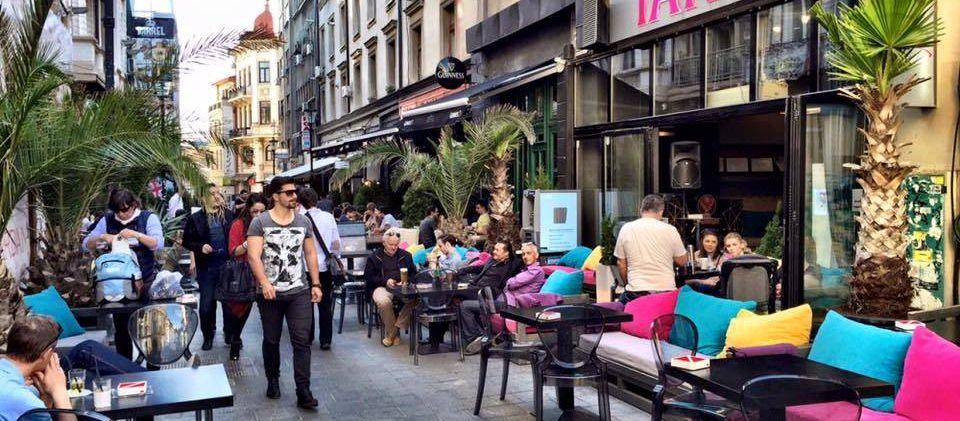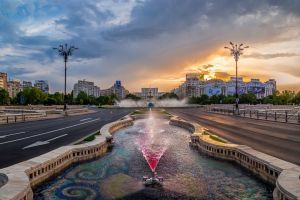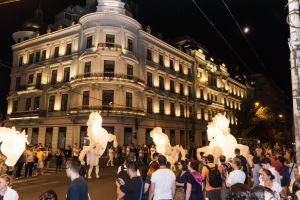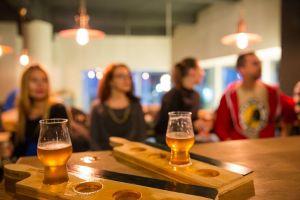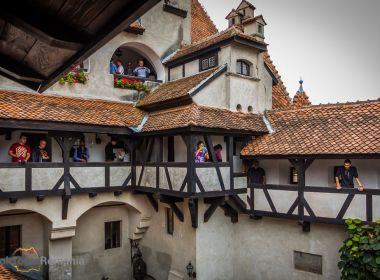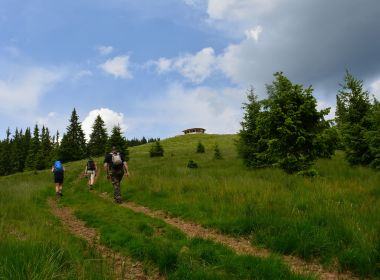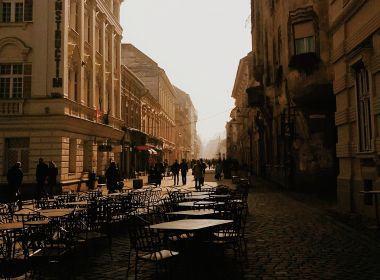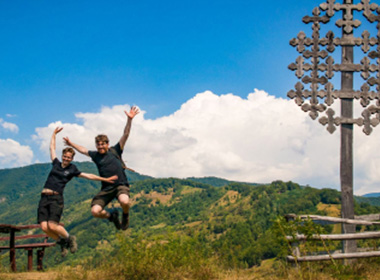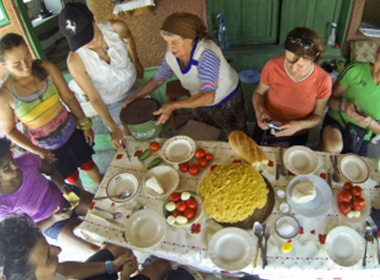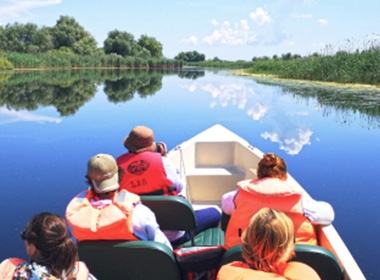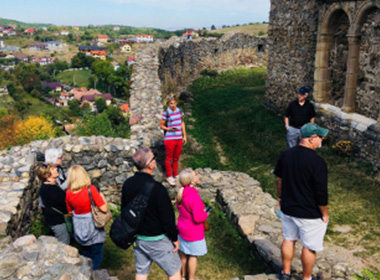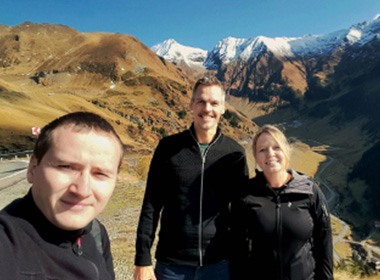Bucharest, the buzzing capital of Romania, is an eclectic city of contrasts that combines its rich and tumultuous history with a fast-paced, buzzing vibe typical of big European capitals. Tourists are often captivated by the hustle and bustle - or scared by it and decide to spend little or no time at all.
The unspoken truth is most tourists still wonder is Bucharest safe or worth visiting - and sadly they tend to think not. This is usually because:
- stories from 10+ years ago (that you can find about all cities!)
- travel bloggers who visit Romania for 3 days and come up with “expert opinions”
- Bucharest (and generally Romania) has a poor tourist promotion strategy
So in this article, we’ll give you the real, up-to-date overview of how safe Bucharest is to visit. We’ll talk about security concerns, risks and scams for tourists in Bucharest and give you important info and valuable local tips to make sure you have a safe and enjoyable trip here.
- Check our tourist guide on what to do in Bucharest with 50+ ideas of things to do, major attractions, tours and places to go out!
We’re locals who live in Bucharest and know the reality on the ground as it is - and want to share that with you. Even if our city is rough on the edges and has many things that could be better, in fact, it’s a very safe city and it’s unfair to generalise and use past problems to describe it today.
That's why we want to help you visit Romania, have a good time and see how friendly everyone is. We also wrote about how Romania is safe for your holiday, even if harder to believe from the outside :)
Things - and people - change! So let's dive in this practical guide on how safe Bucharest is today:
Table of contents
- Before You Go: Travel Research and Planning
- Is Bucharest worth visiting? Common misconceptions
- Bucharest safety rank in the world
- General safety tips for tourists in Bucharest
- Street crime in Bucharest
- Typical tourist scams in Bucharest
- Safety on the Road: Driving in Bucharest
- Safety when going out in Bucharest
- Safety advice for solo female travelers in Bucharest
- Cyber safety
- Is Bucharest safe for same-sex relationships couples?
- Safety in Bucharest public transport
- Emergency and healthcare services
- Extreme weather in Bucharest
- Conclusion
Before You Go: Travel Research and Planning
Before we answer Is Bucharest safe to visit? let's do a quick recap of some general tips on research and planning before you travel. This can go a long way in ensuring a safe and enjoyable trip.
Here are some essential tips to consider:
- Know Your Contacts: Memorise the unique number for all local authorities (112). Knowing where is the nearest police station or hospital can also be helpful.
- Public Transport info: the city boasts an extensive network, including trams, buses, and metro lines. Research the routes and schedules to navigate the city efficiently and safely. Check our complete guide on Bucharest public transport to find out more!
- Plan Ahead: Plan your itinerary, book accommodations and tours in advance early to avoid last-minute hassles.
Weather Watch: Check the weather forecast for Bucharest and pack according to the season. Check our guide on the best time to visit Romania to find out more
- Travel Insurance: Consider purchasing travel insurance that covers medical emergencies and trip cancellations. This provides peace of mind and financial protection in case of unforeseen events.
- Document Safety: Make photocopies of your important documents, including your passport and driver’s license. Keep the originals in a secure place, maybe in your hotel room, and carry the copies with you. And if you're traveling solo, inform your friends or family about your itinerary.
I take these basic and key travel safety precautions everywhere I go. In several European cities, particularly in Eastern Europe, there are general safety concerns and fears regarding the prevalence of theft and crime, and questions about how vigilant to be in crowded places. While no incidents of terrorism have occurred, it's crucial for travelers to stay alert.
So now let's see what Bucharest has to offer while staying safe and secure!
Is Bucharest worth visiting? Common misconceptions
First, let's get things straight. In the late 90s and early 00s, Bucharest (like Belgrade, Sofia and Budapest) earned a reputation for tourist-focused scams.
The context for this is simple: the city was kind of like the Wild West as it emerged from the firm grip of Romania's communist regime. Corruption flourished as everyone was hustling to make money and get out of poverty. And because the country was not open to foreign tourism before - no one knew how to do it right!
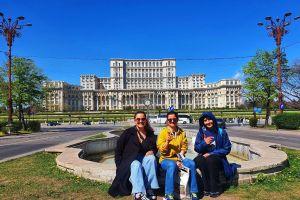
Communist Walking Tour: History, Megalomania & Hidden Sights
Start from: Revolution Square next to the Rebirth Memorial (The patatoe)
Most scams that damaged Bucharest's safety reputation were about:
- locals pretending to be a taxi driver at Bucharest airport terminals, North Train Station or in the city who offered their ‘help’ (aka overpriced services) to unsuspecting tourists by manipulating the fare meter;
- taxi drivers in the city who overcharged tourists (and locals!) by manipulating the fare meter;
- unofficial tourist guides who used all sorts of deceptive tactics to charge unreasonably high prices;
- people making false promises over the phone or email regarding their accommodation or services
- small thefts in the Old Town, the hotspot for Bucharest nightlife and where most tourists go out
This fuelled the perception that Bucharest is not a safe city for tourists. Coupled with the inexistent strategy to promote tourism in the city by local authorities, this gave Bucharest a bad reputation.
But similar security issues also existed in other European capitals or major cities! So common advice such as staying vigilant when in public transportation or visiting crowded, popular tourist attractions is nothing new.
However, Romania's capital has significantly changed and raised its level of safety since the early 2010s. Authorities have taken many actions to address these worries, including tighter controls on taxi services and more police presence in popular tourist locations such as the Old Town.
And to hit the nail on the head - historically and statistically, there is a very low probability that tourists (or even locals) could be victims of violent crimes in Bucharest. They just don't happen, and the city has a pretty chill vibe :)
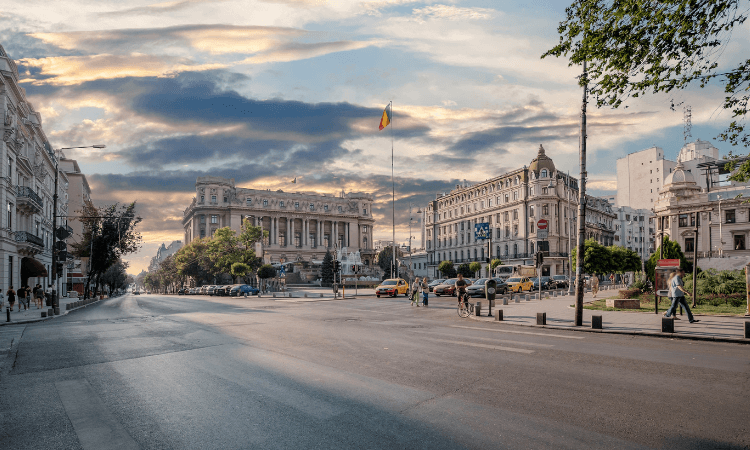
Bucharest safety rank in the world
Numbeo ranks cities safety index based on the probability of being mugged, assaulted, insulted or being subjected to armed attacks, among others. The greater the number = the safer the city.
Bucharest scores 71. Let's put that into perspective and look at how safe are other tourist cities in Europe:
- London's safety index is 46
- Paris scores 42
- Rome’s index is 47
- if you visit Cluj the 2nd largest Romanian city, the score is 76
- Budapest (from neighbouring Hungary) scored 65 while Sofia (Bulgaria) 58
So you can clearly see that Bucharest is much safer than major capitals in Western Europe! Don't believe us? Check our suggestions for what to visit in Romania and come over to see for yourself :)
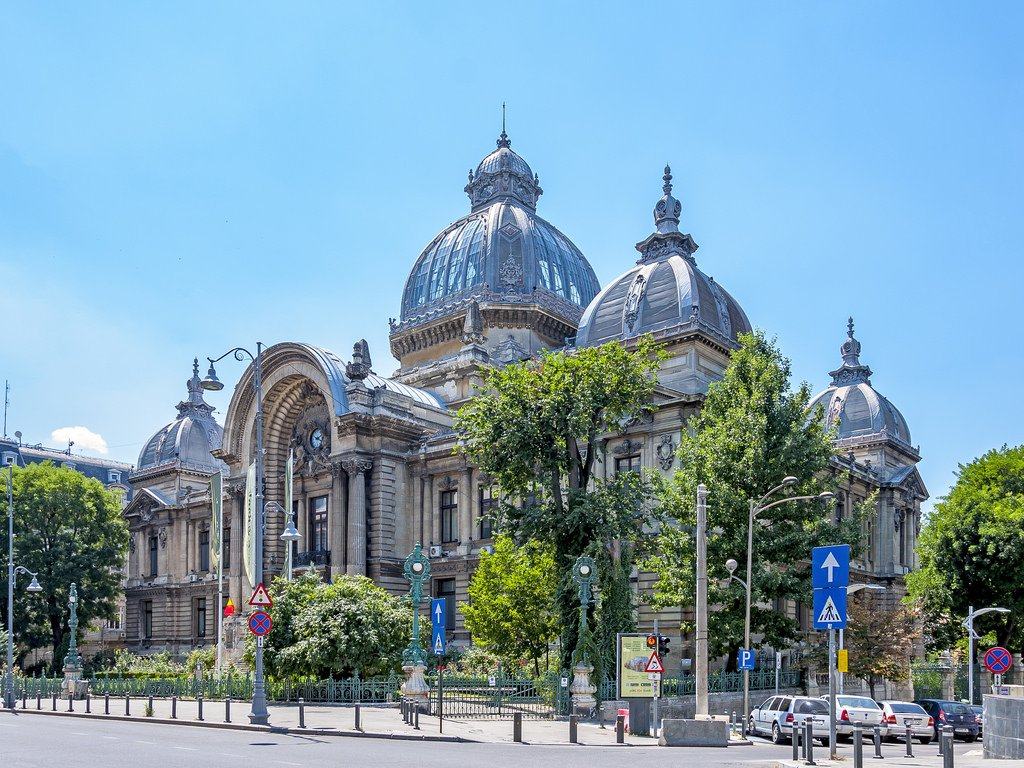
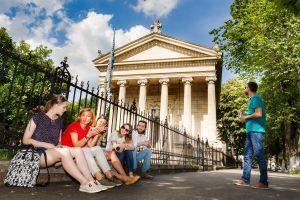
The "Little Paris" Bucharest: Architecture, Old Houses & Bourgeois Stories
Start from: University Square
General safety tips for tourists in Bucharest
Now let's dive deeper into how safe Bucharest is for tourists. Quite simply - if you're an informed traveller using your common sense, who stays aware of your surroundings and follows the local tips we prepared for you in this article - you'll be 100% safe!
You should know there have been no terrorist incidents, ethnic or religious conflicts in Romania's capital. Violence in the streets (like what you see in France during protests) rarely happens, and when it did it was usually because rival football fans clashed.
Most protests in Bucharest are usually peaceful and against our corrupt politicians, or strikes from unhappy citizens. There are no gun issues, mass shootings and violent crime incidents are very rare.
The typical tourist scams in Romania's capital are similar to those you've probably heard about in other larger cities and they're harmless:
- stay away from anyone ‘offering’ their services or 'special' products
- asking for help in an unusual way: needing money on the spot, your phone, you to go somewhere, etc
- very crowded areas when you feel someone is too close to you (although Romanians have a nasty habit of getting to close to you in a queue which goes back to our communist past when people had to queue for everything...)
- rude taxi drivers or ones who don't speak English
- drunk people especially in the Old Town area
So, you see, there’s nothing in particular seasoned travellers should be worried about. Very rarely you might encounter other types of incidents, but we’ll do our best to discuss them in the following sections.
- Keep an eye on your personal belongings
Probably the #1 rule when traveling. Doing this will reduce the chance of theft or pick-pocketing. Keep your stuff close to you and if possible, use anti-theft bags or secure pockets to keep your most important items - like wallet, passport or phone.
You know the saying even if the rate of thefts is low, it's never zero - I think this is true everywhere!
- Avoid flashing valuables
Avoid displaying expensive items or wearing extravagant jewellery to avoid drawing unwanted attention. Instead, choose to be discreet to blend in with the people around you and reduce your risk of becoming a victim of theft or scams.
If you're out to enjoy the nightlife, make sure you are well put together without going overboard.
- Be mindful of your cash
Just like wearing ostentatious jewellery, displaying large sums of money in public increases the possibility of becoming a target for theft. There are notes for 1, 5, 10, 50, 100, 200 and 500 Lei. 500 Lei = 100 Euro. So your wallet can quickly get stuffed with lots of notes that you don't really need!
We recommend to carry only the amount of cash essential to cover your daily needs (tips, small purchases or if you're planning to go in rural areas or hiking in Romania).
Using credit or debit cards or paying with your phone is very easy and widespread in Bucharest (like the other bigger cities in Romania), so also the safest option. But not in rural areas!
- Stay aware of your surroundings
Just like in any other city, staying safe in Romania's capital requires maintaining a state of awareness. Be conscious of your surroundings, particularly when you're in crowded spots, popular tourist destinations, or when using public transportation.
Follow your gut and stay away from people or situations that make you feel uncomfortable. Learning some Romanian phrases such as Ajutor! (help!) may be useful too.
- Walk on well-lit and main streets
Bucharest has a lot of safe locations to explore, but it's best to stay on well-lit streets and main roads, especially after dark. Avoid empty side streets if you can. Travelling with someone or in a group can provide an added sense of security, particularly during nighttime.
There are a few neighbourhoods that have a bad reputation and even those are only considered potentially dangerous only in a few particular areas. But they're on the outskirts of the city and have nothing touristy about them so most tourists never venture out there anyway.
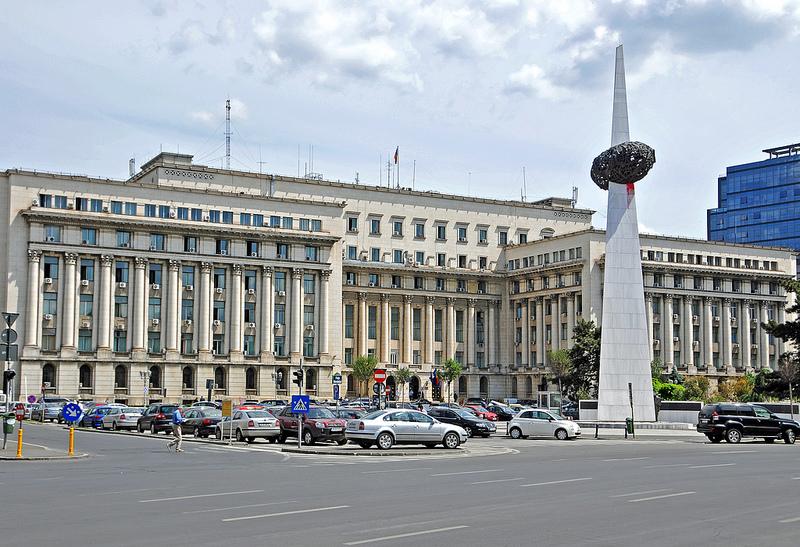
Street crime in Bucharest
It's important to be aware of street crimes when exploring Romania's capital - but it mostly consists of non-violent events like bag and phone snatching. You can drastically lower your chance of being a victim of street crime by understanding how these crimes operate by applying the following safety precautions:
- Pick-pocketing in crowded areas
Pick-pocketing is the most common method used for street crimes. It usually takes place in crowded places like pubs, clubs, large events or when using public transportation. To reduce the risk of being targeted:
- keep your personal belongings protected and within sight at all times.
- think about carrying a cross-body bag with zippers and interior pockets to store your valuables
- avoid carrying valuables in easily accessible pockets.
The Old Town area and North Train Station are examples of places where unsuspecting tourists have higher chances of being targeted.
- Avoid bag and phone snatching
Bag and phone snatching the most frequent street crimes to be aware of. Thieves go after people who are carrying exposed phones or unsecured bags. To prevent being a target of these incidents:
- when in crowded locations, keep your bag or backpack closed tightly and held in front of you. We recommend opting for anti-theft models of bags when travelling.
- use caution when using your phone in crowded or dimly lit environments in which it could be easily stolen
- stay alert in busy areas
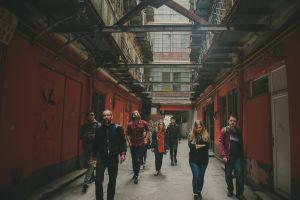
Untold Stories of Bucharest: Prostitution, Holocaust and Communist Terror
Start from: Piata Romana (Romana Square)
- Threats posed by animals
Rest assured, the city is more bark than bite :) Stray dogs used to be a topic of concern more than 10 years ago. Bucharest has made significant progress in addressing the issue of stray dogs and improving safety in relation to them. So, once again, tourists don't need to worry about this.
Although you may see a stray dog, efforts have been made to reduce their numbers and minimise potential risks. Romanian authorities and local non-profits have organised neutering, vaccination, capture and adoption campaigns in an effort to reduce the number of stray dogs and to ensure everyone's safety.
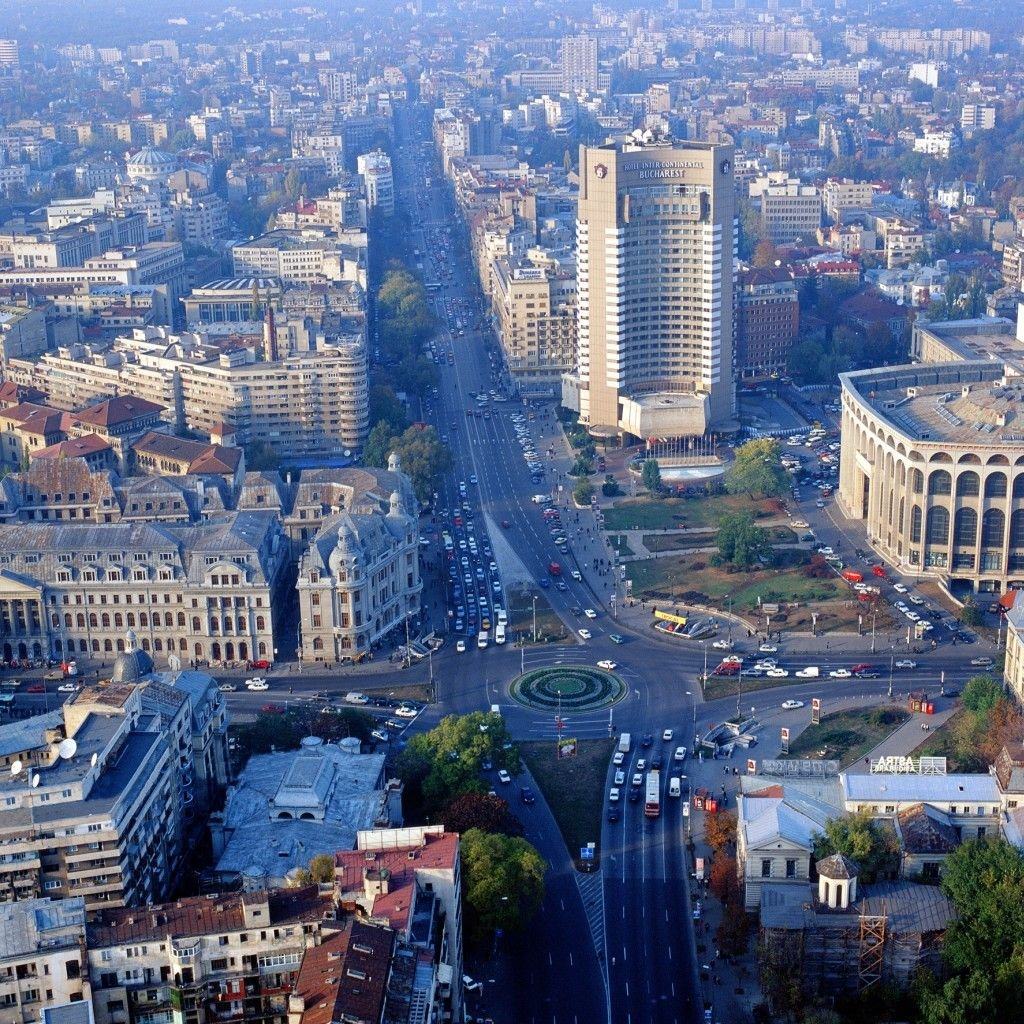
Typical tourist scams in Bucharest
Safety in Bucharest safety has improved a lot over the years but it’s good for tourists to be aware of typical scams and deceptive tactics. Here’s a list of the most well-known tourist scams in Bucharest:
Taxi scams: some taxi drivers might try to increase the cost of the ride by manipulating meters or taking longer routes to the destination (you’ll often find these types of drivers at the arrivals terminal, train stations, or city center). The most common method is claiming they don’t have change when you pay with a large bill.
Local tip:as Bucharest has lots of side streets and traffic is heavy, some drivers may take alternative routes; if you feel unsure, you can check in Google Maps your destination and see if the driver deviates too much from the suggested route. if in doubt, ask the driver to clear the air.
Fake guides: If someone spontaneously approaches you on the street, offering their services as a tour guide, you’d better be suspicious. Chances are you will be charged much more than if you’d book from an official tour operator or the quality of the tour will be very low and unsatisfactory.
Currency exchange scams: Always exchange money at banks or authorized bureaus, and be sure to check the exchange rate. There are lots of exchange houses cities and the fee is usually 0.
You can also withdraw Romanian cash (RON / or popularly Lei) from any ATM belonging to reputable banks (BCR, BRD, Banca Transilvania, ING). Avoid Euronet ATMs which have huge fees for withdrawals.
Local tip:exchange houses in the airport typically have bad rates compared with what you can get in the city. To get some Romanian Lei for the taxi fare or other small expenses, we recommend you change 20 Euro at most when arriving in the airport or at the train station
Fake police officers or fake bus ticket controllers: Although a very rare occurrence, people posing as a police officer may approach tourists and claim to be doing random checks. Ask for proper identification when being approached, and if you have any concerns, call 112.
The same is true for people who board buses, trolleys or trams and claim to be authorised controllers. They would demand sums of money from travellers without a validated ticket, pocketing all the money. So if you encounter bus ticket controllers in Bucharest and they demand money from you, ask to see a badge of identification and if you are still suspicious, alert the authorities.
The gift scheme: This is frequent especially in the Old Town area. Usually a woman or a child will approach the table where you’re sitting (or sometimes directly on the street) and will hand you a rose, a bracelet or something similar. Some people reach their hand instinctively to take what they’re offered.
Once you touch “the gift”, the scammer will demand a sum of money that is often way more than the real price.
Restaurants and bar scams: Romania’s capital is well-known for its good food, trendy bars and amazing food. Rarely, especially if outside of city center areas, some establishments may ‘mistake’ prices, have hidden charges or incorrect billing. This is not always a scam and sometimes it can be an honest mistake! Nonetheless, it’s a good idea to check menu prices in advance and the bill, and discuss any inconsistencies with the staff.
Safety on the Road: Driving in Bucharest
Driving in Bucharest can be an adventure in itself, especially for foreign visitors. There's heavy traffic, especially during rush hours, so expect long queues. This makes lots of drivers nervous and most have an aggressive and fast driving style.
My advice: don't get intimidated, stay alert and keep moving.
Here are some safety tips to keep in mind if you plan on driving in Romania:
Permits and Licenses: If you want to rent a car and are not from the EU, you need an international driving permit along with your valid driver’s license. If you're bringing your own car to Romania, you should buy a vignette at border points or petrol stations to avoid a fine. The minimum age for driving in Romania (for all vehicles except some motorcycles) is 18.
Know the Rules: Stay informed about local traffic laws, including speed limits, parking restrictions, and other regulations. For example, your car must have a first aid kit, fire extinguisher, red warning triangle, and a fluorescent jacket. Additionally, if you plan to drive your car in the winter, you should have winter tyres.
Stay Alert: Be aware of aggressive drivers and pedestrians, especially on major city streets and boulevards with several lanes. Bucharest’s traffic can be hectic, so staying alert is key.
Taxi Tips: Use only licensed metered taxis or ride-sharing services like Uber or Bolt. Always check the driver’s license is well displayed before getting in to ensure your safety.
Police Encounters: Be cautious of police officers who may ask for bribes in traffic or try to scam you. Always ask for proper identification and be aware of your rights.
Good news: horse-drawn carts can be used only between 21:00 - 23:00 and wandering livestock shouldn't go more than 50m from their home.
I hope you smiled :)
One growing topic of discussion right now regarding driving laws in Romania is the drug tests that Romanian police are conducting on the roads. These tests have several issues, the main one being that they are calibrated at very low thresholds, detecting even trace amounts of substances consumed days before driving.
You can even test positive on a drug test after taking a common cold pill or one with an analgezic effect. Additionally, Romanian authorities enforce a zero-tolerance policy regarding drug offences.
If you test positive - even if you haven't taken drugs before driving - or come from a country with more relaxed laws on recreational use, or simply took medication for anxiety, ADHD, or a cold, you could still be treated as a drug offender.
This can potentially lead to prison sentences. Civil groups in Romania are pushing for changes to the law, including the introduction of limits on drug tests to avoid situations in which an innocent person receives a prison sentence, but so far no changes have been made.
This exaggerated reaction is due to a series of grave accidents on national roads resulting in deaths caused by drivers under the influence of drugs.
(Suspended) Jail sentences are also possible for driving under the influence of alcohol, with certain limits applied in these cases.
Safety when going out in Bucharest
Visitors may enjoy a lively and vibrant experience thanks to Bucharest's nightlife and entertainment alternatives. While the city is renowned for its vibrant atmosphere, it's crucial to put safety first when taking part in the nightlife.
Here are some key points to keep in mind:
Occasional conflicts: There may occasionally be incidents between drunk people and security staff in busy nightlife locations. If you stay out of it, these situations are often small-scale and do not constitute a serious safety risk.
Drugs and drink spiking: Bucharest doesn't have a significant drug issue and instances of drink-spiking or drug-assisted violence are quite rare. Still, be careful while receiving drinks from strangers and never leave your drinks unattended.
Call 112 if you feel sick after ingesting your drink or believe it has been tampered with.
Thefts in crowded places: for tourists and locals alike it's crucial to be aware of your possessions when in crowded areas like clubs, pubs or resorts such as Therme where there are a lot of things going on. Consider storing them your valuables in a locker or in a hotel safe.
Safety advice for solo female travelers in Bucharest
If you're a solo female traveler alone in Bucharest you will be generally safe - except for the occasional odd and long stares. As you will see, locals in Bucharest value their appearances (especially women) when going out.
So lots of uncomfortable stares might turn out to be in fact ‘checking you out' looks of admiration or curiosity.
There may be some 'catcalling' - but that's where it stops. And here once again the advice is quite predictable for solo female travelers:
- stay away from groups of men who consumed alcohol
- avoid side streets at night
- ask for help if someone is pushing the limits
- keep your friends and family informed of your whereabouts
It's common for Romanian men to approach women and offer a drink to start a conversation. If you're not interested, politely and firmly decline. Always follow your gut and leave any circumstance that makes you feel uneasy.
Never be afraid to seek help from staff, local authorities or strangers on the street if you need help. Trust your instincts and prioritise your safety above all else.
Cyber safety
Tourists should take necessary precautions to ensure the safety of digital data when visiting Bucharest. Just like in any unfamiliar destination, it's important to be mindful of potential cyber threats.
Stay away from unsecured public WiFi networks since they are susceptible to hacking and data leaks. Instead, think about encrypting your internet connection and ensuring secure browsing by using a reliable virtual private network (VPN). It's better to exercise caution than to be sorry.
To protect your finances and avoid ATM fraud, make sure nobody can see your card's PIN when withdrawing money from ATMs. Also, make sure that the ATM card slot has no modifications or card cloning devices.
Is Bucharest safe for same-sex relationships couples?
While same-sex relationships are legal in Romania they are not widely accepted and sometimes frowned upon. So it is better to avoid public displays of affection.
Even though there are active LGBTQ+ communities and events in Romania, the majority of LGBTQ+ people are not open. You will not see same-sex couples holding hands while strolling on the streets to avoid any kind of hostility toward them.
Even though the European Union continues to press Romania to recognize same-sex marriages, it seems that it will take some time before such relationships will be widely accepted by politicians, the church, and the conservative part of Romanian society and local media.
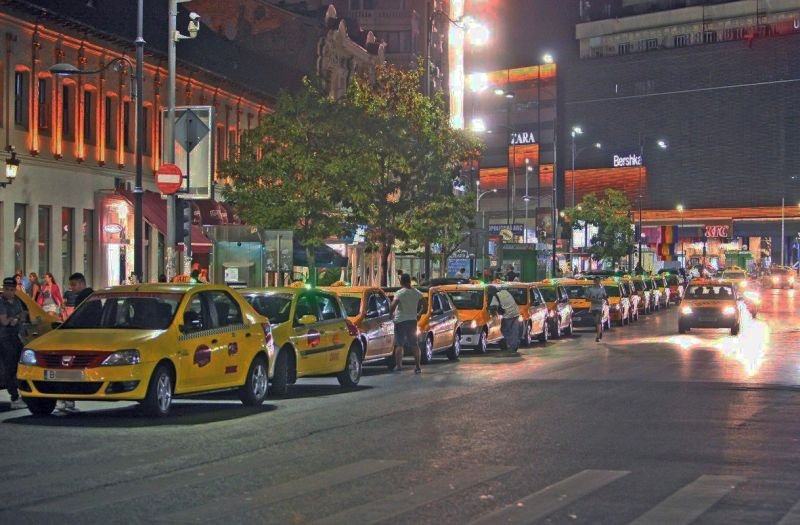
Safety in Bucharest public transport
In terms of safety and convenience, public transport in Bucharest has gone a long way offering a variety of options for locals and tourists alike to experience the city. By far the best way to navigate the city is using the extensive network of metro stations.
Check our complete guide on Bucharest public transport to find out more important info on using taxis, the subway and other means of public transport.
- Using taxis in Bucharest
Bucharest is a large city and when you need to get a taxi using a ride hailing app like Uber or Bolt is the best choice and safest option because you can see the driver's profile and pay using your bank card. You can use these apps in all our major cities too.
Authorised metered cab or taxis have typical signs: company name & logo, authorisation number, fare written clearly on the side of the car and have a fare meter. Before getting in you can ask if your driver speaks English and make sure the meter is working.
Paying by card for the taxi ride is not possible so you must have cash on you. Some drivers may say at the end of the ride they don't have change to give you back so ideally you should have some small notes too. It's also common to leave a small tip of 5 lei after your taxi ride.
1 Euro = 5 Lei so don't get worked up about small amounts because most distances in Bucharest are covered with a 20 - 40 Lei fare. A taxi ride to the airport from the city center costs around 70 Lei (14 euro).
Traffic jams and aggressive driving. Locals in Bucharest have a reputation for their sometimes aggressive driving behaviour. While this may seem intimidating, it's typically harmless. Accidents do occur from time to time, but it's rarely something serious. Usually the cars bump into each other lightly and an accident with casualties is also rare.
If you're in a car during rush hours, don't worry: The traffic is probably so jammed that the cars drive at very low speeds, so the chance of a serious crash is almost non-existent :)
If you're wondering what’s the best, fastest and most secure means of transportation in Bucharest? The Bucharest Metro - reliable, well-maintained, and covers the main tourist sights with convenient metro stations nearby.
Emergency and healthcare services
When exploring a new city like Bucharest, it's crucial to be aware of the emergency and healthcare services available to ensure your safety and well-being. The following are some crucial services you should be familiar with:
- for any type of emergency situations dial 112 an an operator will connect you to the relevant regional service
- Make sure your travel insurance covers medical costs, emergency medical evacuation, and, if necessary, repatriation to your home country.
- Bucharest is home to a large number of pharmacies - or farmacie in Romanian. You'll see lots of green cross signs everywhere. If you need over-the-counter medication or advice, they're a good place to go.
Extreme weather in Bucharest
Climate change is real - and in Romania we see this. Due to its position, Bucharest was always hotter. But the 4 seasons were clear and weather was generally temperate and stable.
But in the past 10 years, things have changed. Summers got longer and hotter, winters shorter and warmer, and there is less rainfall.
Prolonged heatwaves especially in July and August with temperatures between 39 - 42 Celsius (102 - 107,6 F) are getting more common. Much like the rest of Southern Europe, we're getting fried...
Violent thunderstorms are more frequent but luckily flash flooding in Bucharest didn't happen - yet.
If an extreme weather alert is issued by the National Institute of Meteorology while you're in Romania, you will receive alerts on your phone (RO-Alert) with safety instructions also in English.
Conclusion
So, all in all, is Bucharest safe for tourists like you?
Well, as a local, I can tell you that it is a very safe city - but don't trust me blindly.
If you check crime statistics and numbers you'll see that while in other parts of the continent or of the world criminality has gone up in the last years - in Bucharest it has gone down. Here's what travel bloggers have to say about safety in Bucharest:
Now that you know this, what's stopping you to pack your bags come visit Romania and Bucharest?
Hope to see you here soon!
Your Romanian Friend
Anita
